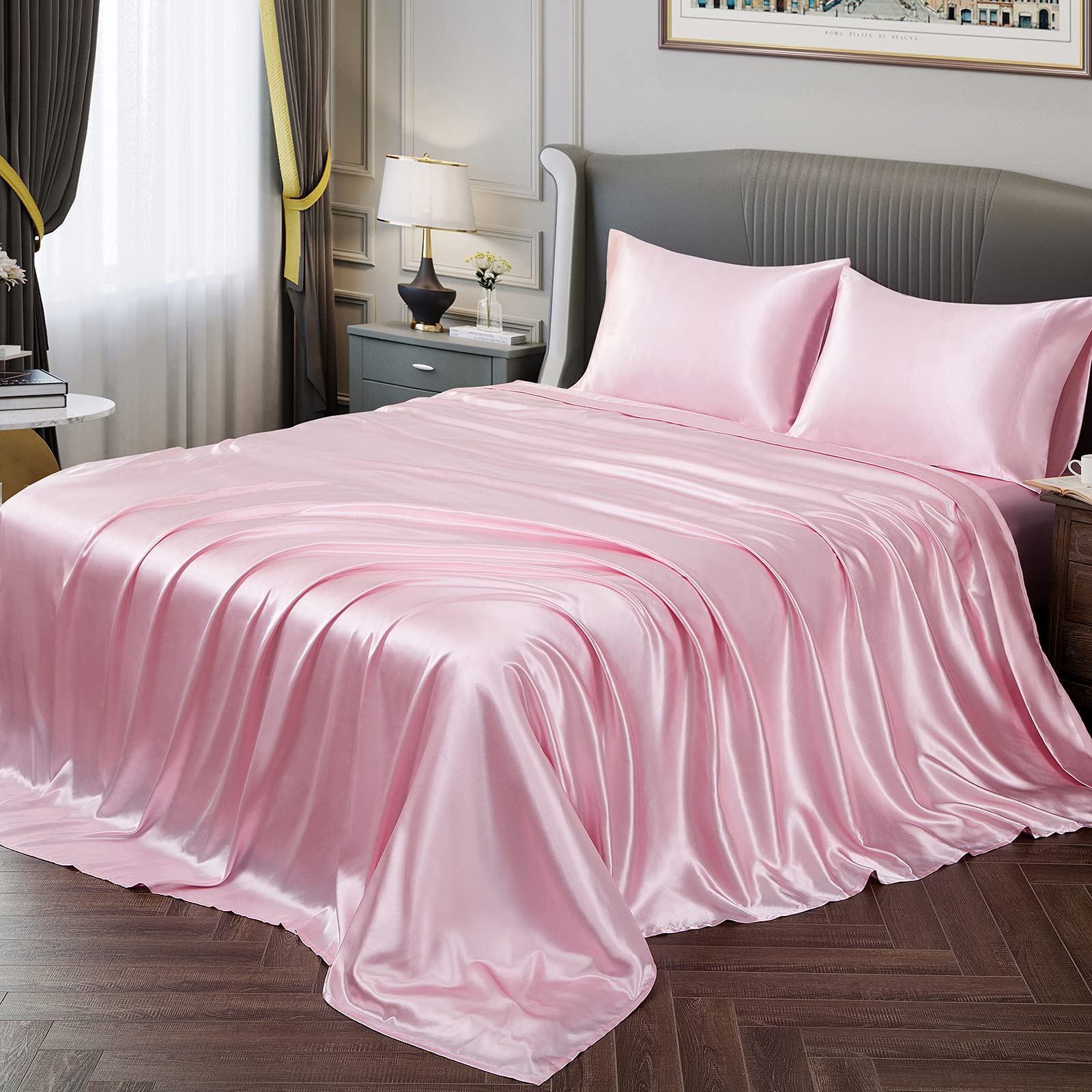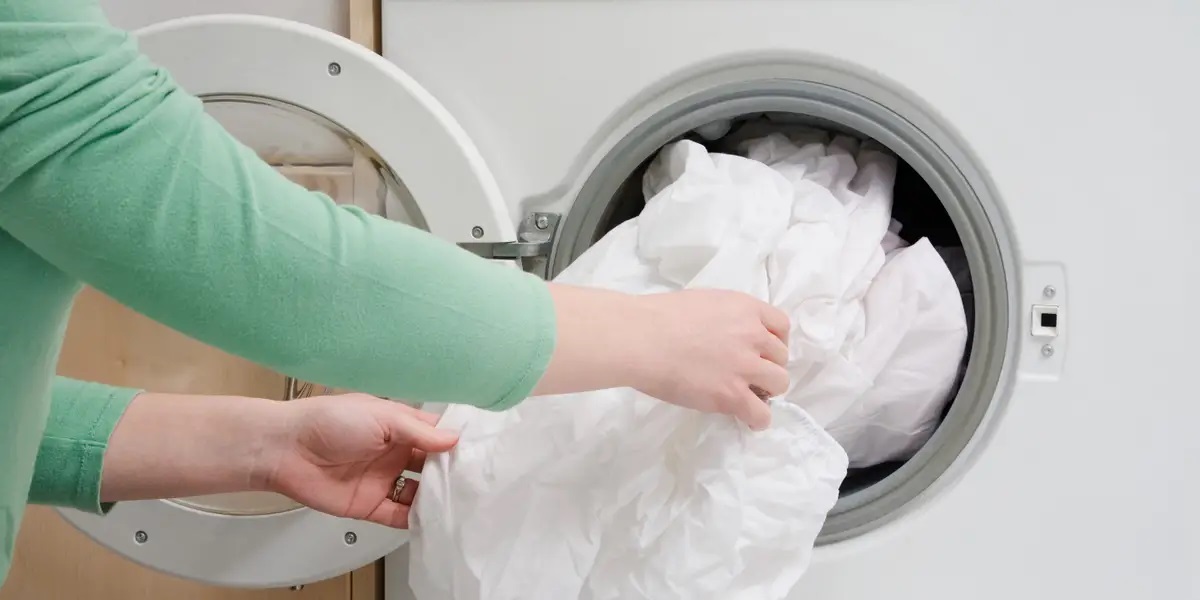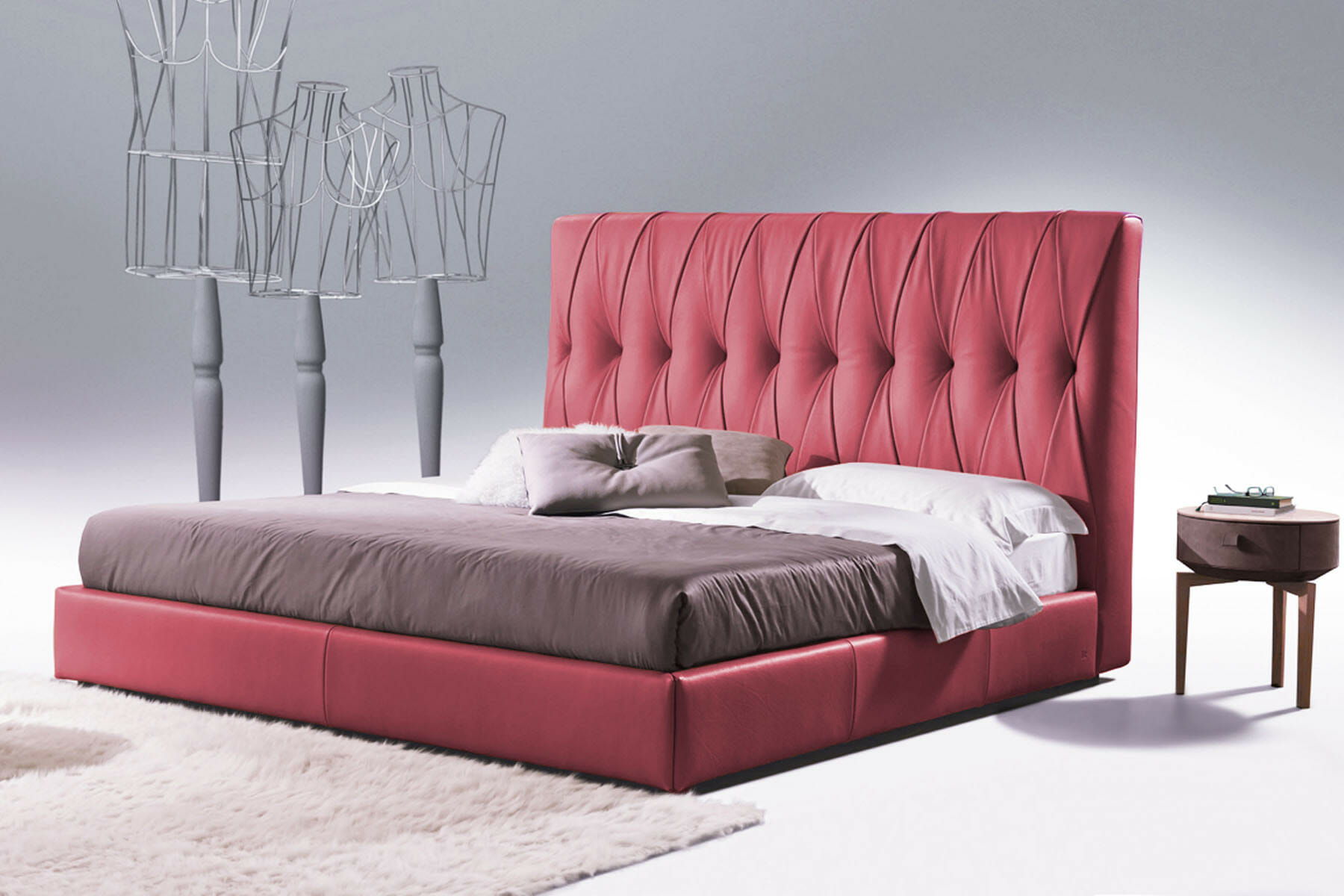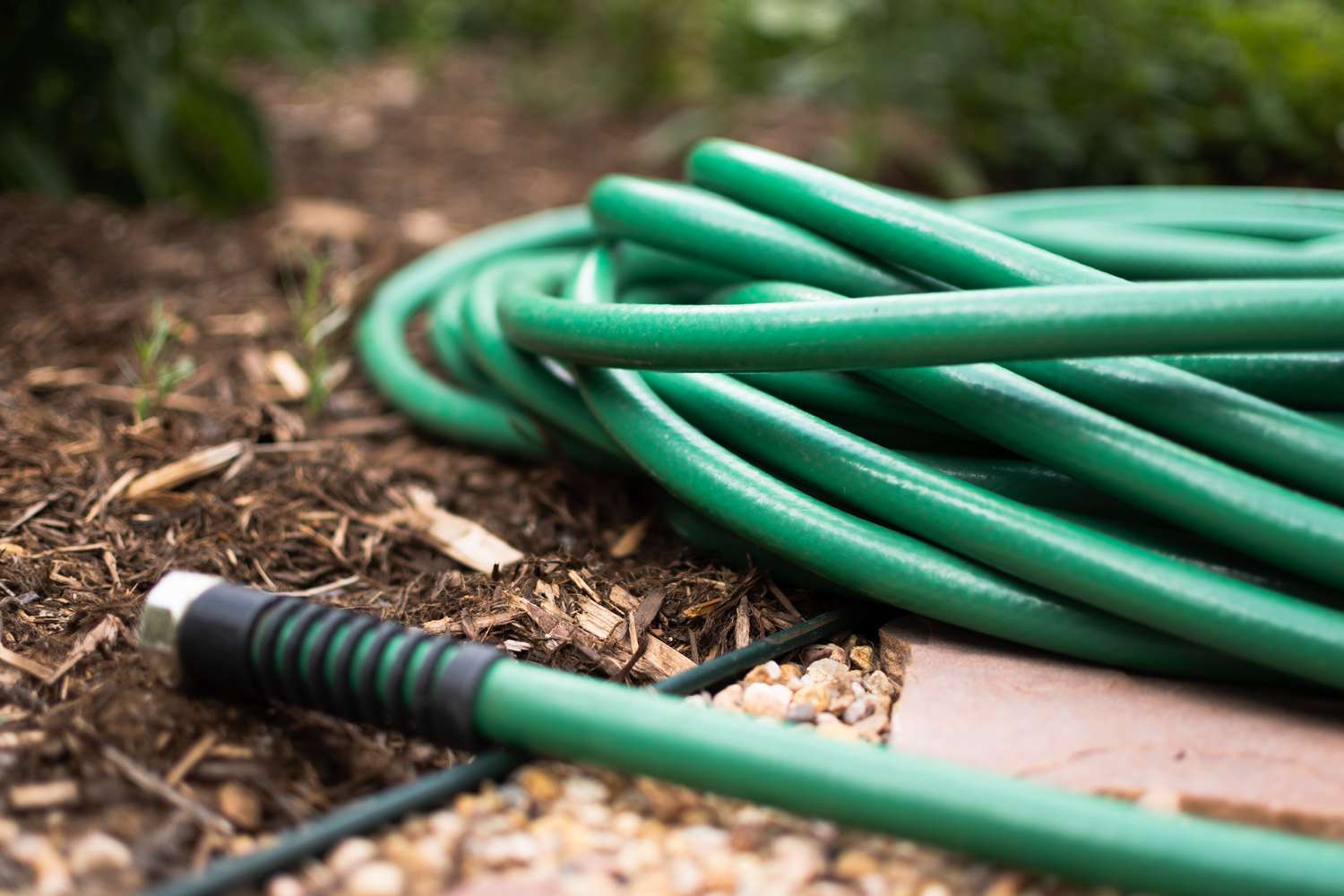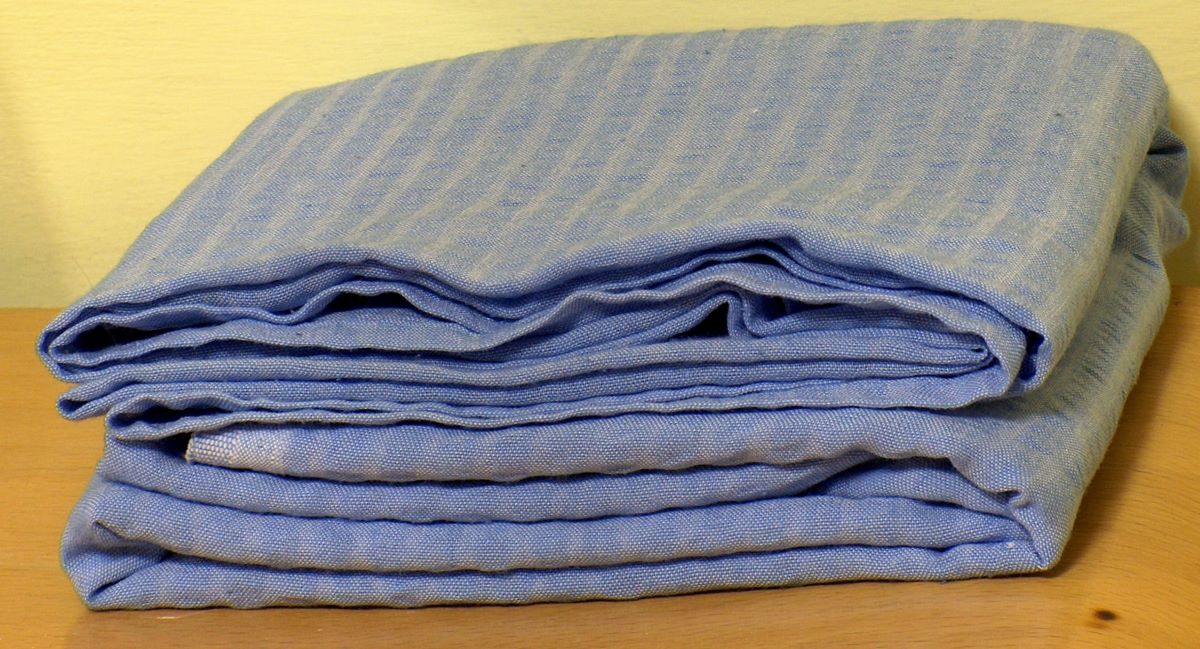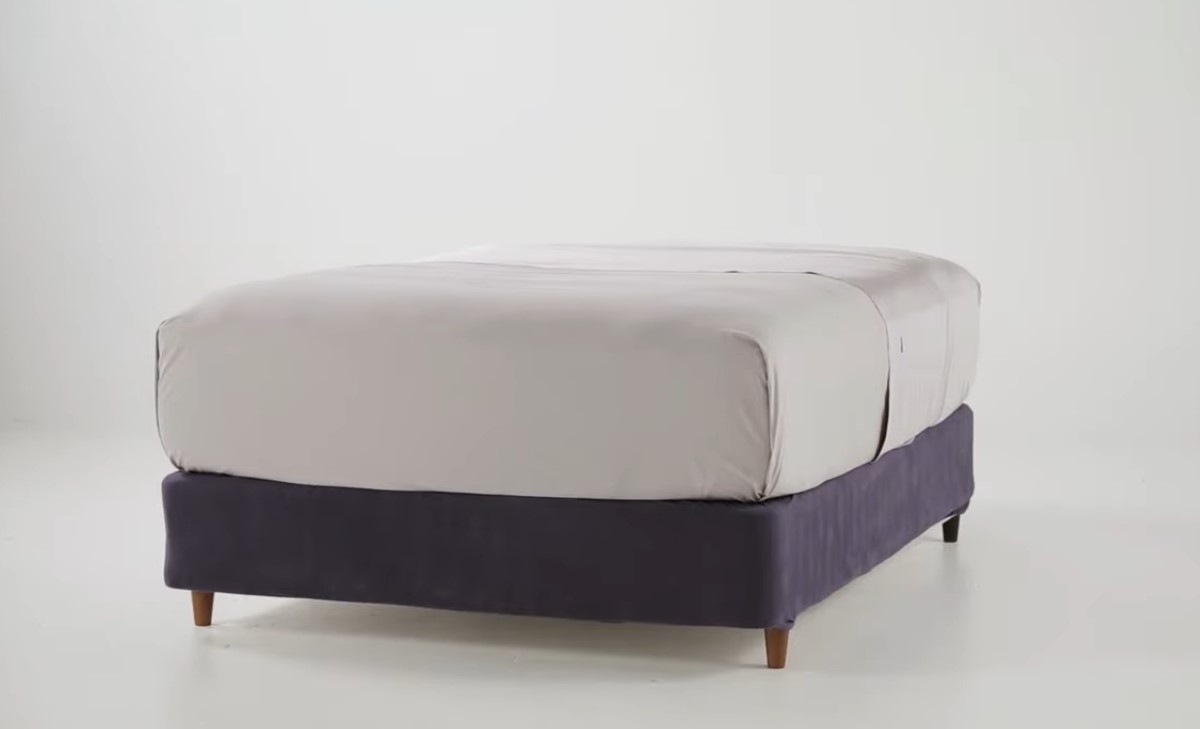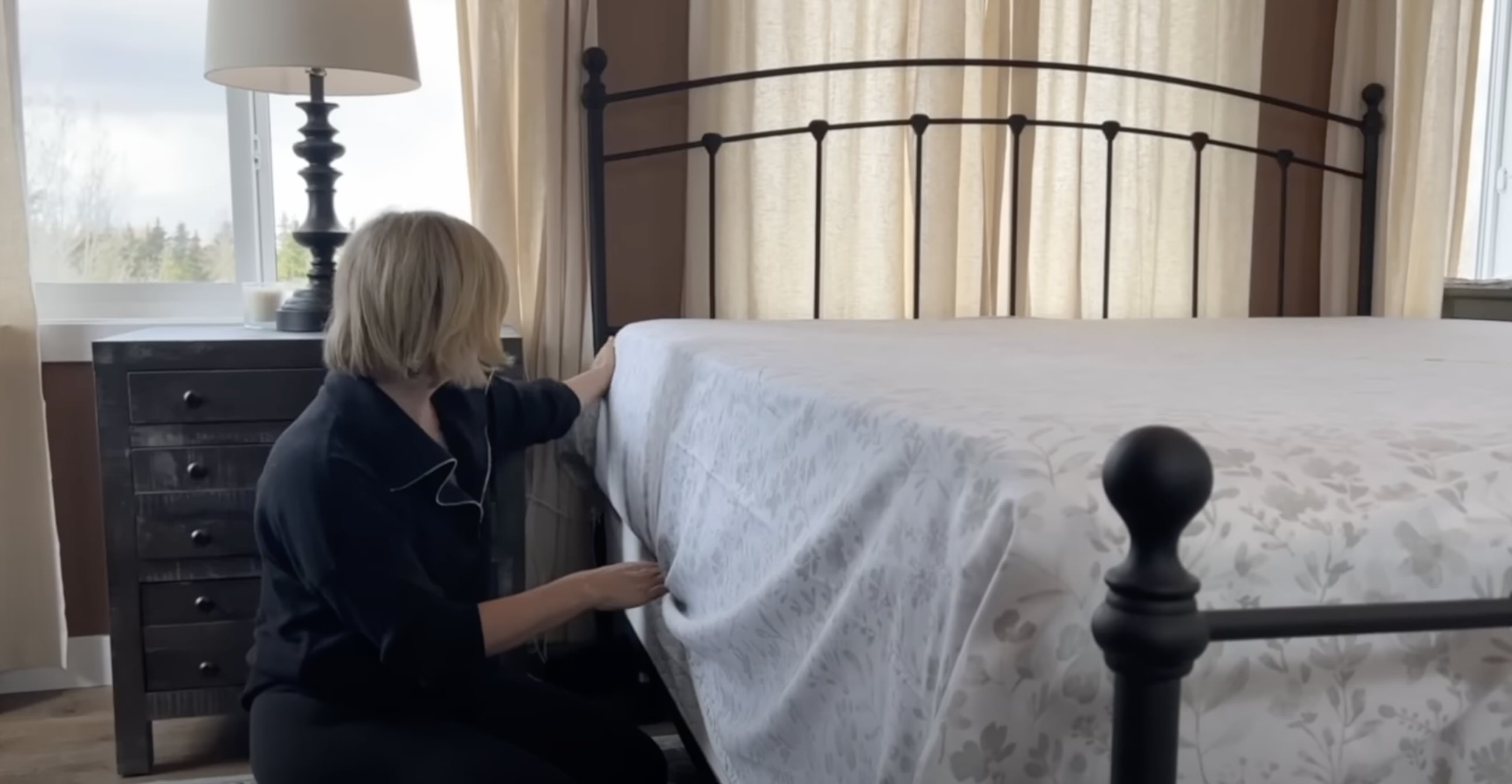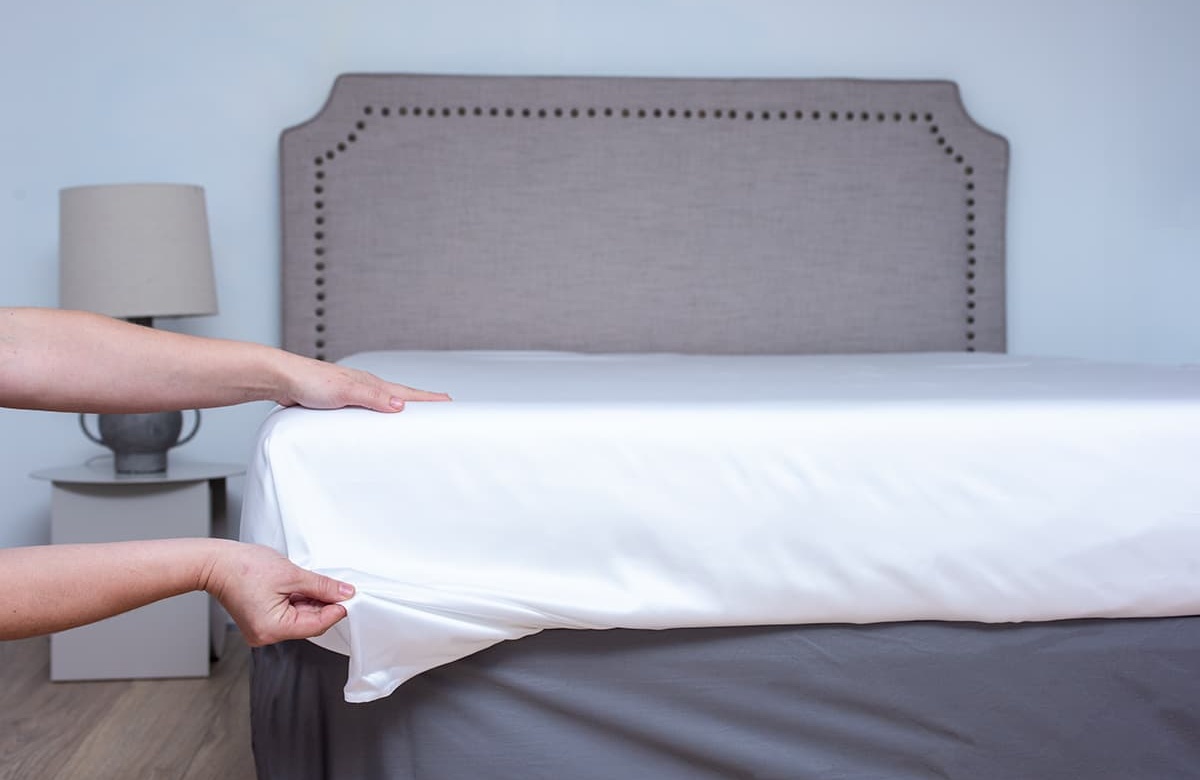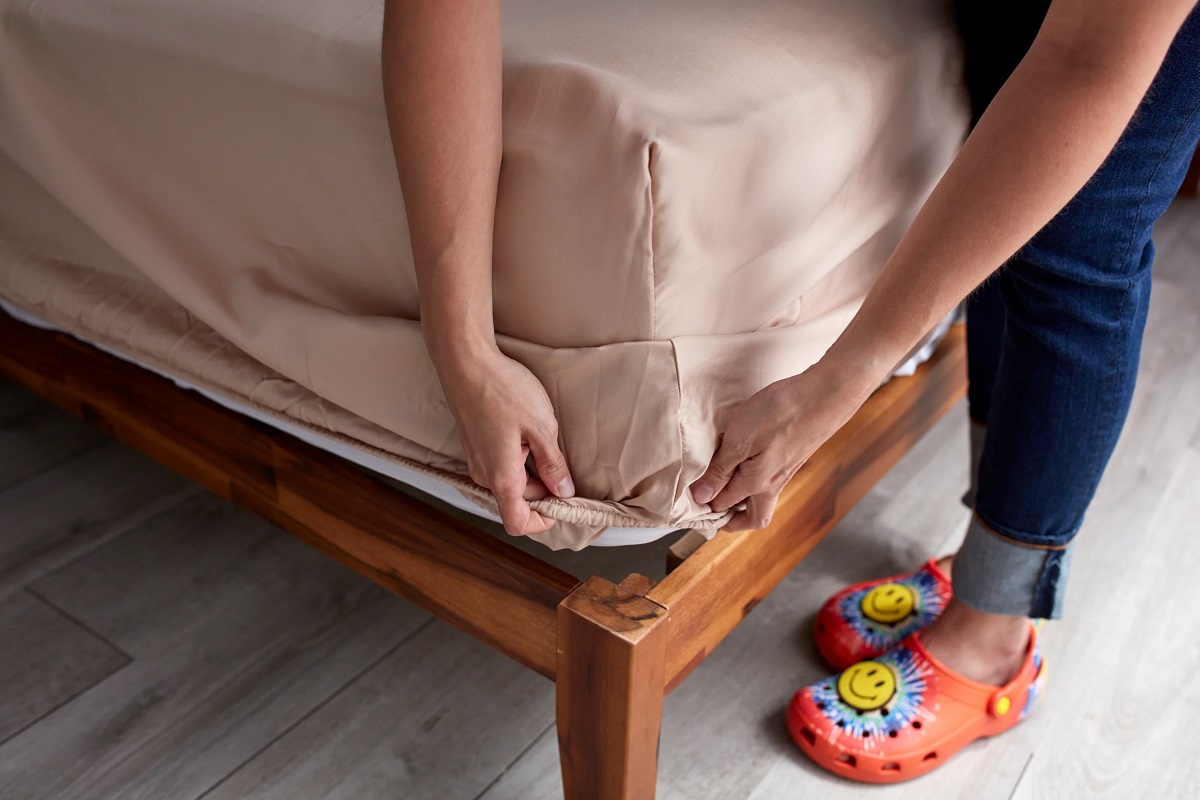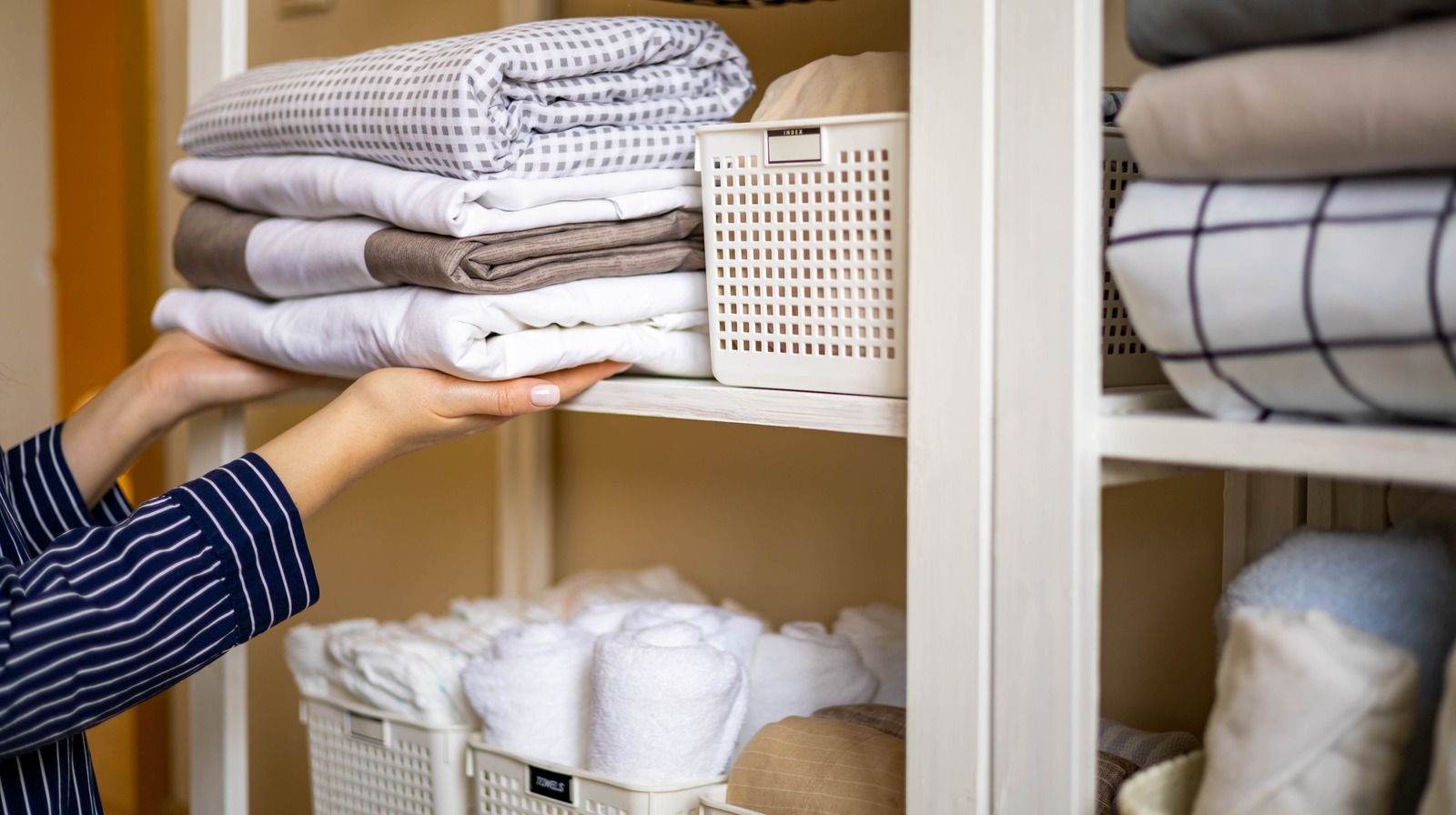Home>Furniture>Bedroom Furniture>What Is A Good Thread Count For Bed Sheets
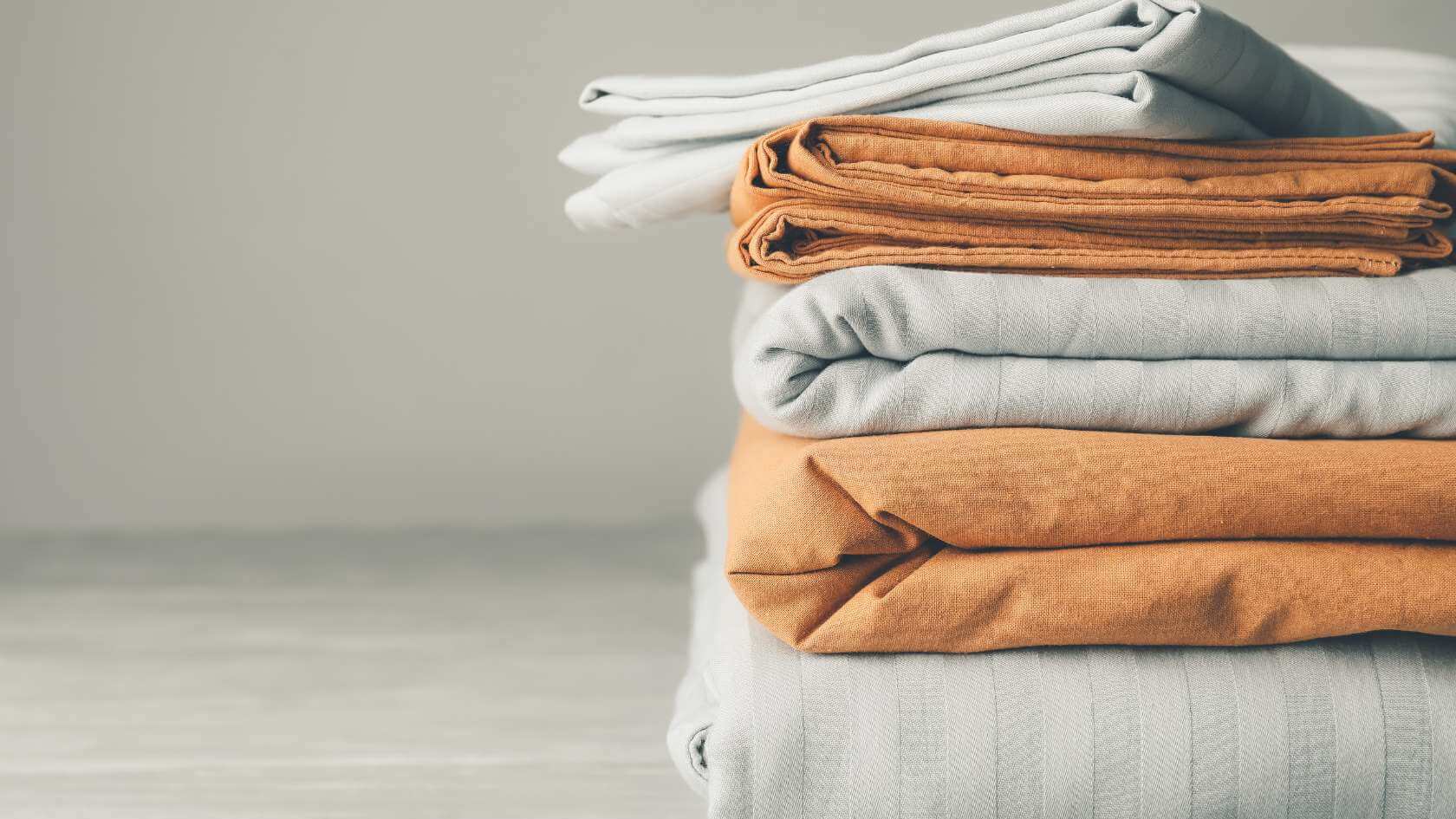

Bedroom Furniture
What Is A Good Thread Count For Bed Sheets
Modified: December 7, 2023
Find out what thread count is considered good for bed sheets and enhance your bedroom furniture with the perfect set. Shop now and elevate your sleep experience!
(Many of the links in this article redirect to a specific reviewed product. Your purchase of these products through affiliate links helps to generate commission for Storables.com, at no extra cost. Learn more)
Introduction
Welcome to the world of bedroom furniture! When it comes to creating the perfect haven for relaxation and comfort, choosing the right bed sheets is essential. One important factor to consider when selecting bed sheets is the thread count. But what exactly is thread count and why does it matter?
Thread count refers to the number of threads woven together in one square inch of fabric. It is often used as an indicator of the quality, softness, and durability of bed sheets. However, understanding thread count can be somewhat confusing, as a higher thread count does not always mean better quality. In this article, we will delve into the key considerations for determining a good thread count for bed sheets.
Before we dive into the specifics, it’s important to note that while thread count is one factor to consider, it is not the sole determinant of bed sheet quality. Other factors such as fabric type, weave, and ply also play a significant role. However, thread count can provide valuable insight into the overall feel and performance of the sheets.
Now that we have a basic understanding of thread count, let’s explore the factors that contribute to a good thread count for bed sheets.
Key Takeaways:
- The perfect thread count for bed sheets depends on factors like climate, fabric type, and personal preference. Consider quality over quantity and find the ideal balance for your comfort and budget.
- Thread count is just one aspect of choosing high-quality bed sheets. Consider factors like fabric type, weave, and individual thread quality to find the perfect balance of comfort and durability.
Understanding Thread Count
Thread count is calculated by counting the number of horizontal (weft) and vertical (warp) threads in one square inch of fabric. For example, a fabric with 200 horizontal threads and 200 vertical threads would have a thread count of 400. Historically, higher thread counts were considered synonymous with better quality, but that’s not always the case.
Thread count alone does not guarantee the softness or durability of bed sheets. In fact, manufacturers have found ways to inflate thread counts by using multi-ply threads. This means that they twist multiple threads together and count each individual ply as a separate thread. For instance, a fabric with two-ply threads could claim a thread count of 800 by counting each ply as a separate thread. This practice can result in misleading claims of high thread counts.
Another important factor to consider is the type of fabric used. Cotton is the most commonly used fabric for bed sheets due to its softness and breathability. However, the quality of cotton can vary significantly. Egyptian cotton and Supima cotton are known for their superior quality and long staple fibers, which contribute to a softer and more durable feel. On the other hand, lower quality cotton, such as regular cotton or blended fabrics, may not provide the same level of comfort and longevity.
Now that we understand some of the nuances of thread count, let’s discuss the factors to consider for determining a good thread count for your bed sheets.
Factors to Consider for a Good Thread Count
When determining a good thread count for your bed sheets, it’s important to consider various factors that contribute to their overall quality and comfort. Here are some key factors to keep in mind:
- Fabric Type: The type of fabric used plays a crucial role in the perceived softness and comfort of your bed sheets. As mentioned earlier, cotton is the most common fabric used for bed sheets. Look for high-quality cotton such as Egyptian cotton or Supima cotton, as they are known for their softness and durability.
- Thread Quality: The quality of the individual threads used in the fabric also affects the overall quality of the bed sheets. Finer and longer threads tend to create a smoother and softer fabric. Look for bed sheets made with long-staple cotton fibers, as they are less prone to pilling, snagging, and fraying, ensuring long-lasting durability.
- Weave: The weave of the fabric determines its breathability, texture, and overall feel. There are various types of weaves, including percale and sateen. Percale is known for its crisp and cool feel, while sateen has a luxurious and lustrous finish. Consider your personal preferences and desired feel when selecting the weave.
- Climate: The climate in which you live also plays a role in determining the appropriate thread count for your bed sheets. In warmer climates, a lower thread count (around 200-400) may be more suitable, as it allows for better airflow and breathability. In colder climates, a higher thread count (around 400-800) can provide added warmth and insulation.
- Personal Preference: Ultimately, personal preference is a crucial factor in determining the ideal thread count for your bed sheets. Some individuals prefer the crispness and lightweight feel of lower thread counts, while others enjoy the softness and indulgence of higher thread counts. Consider your desired level of comfort and the overall feel you want to experience when selecting your bed sheets.
By considering these factors, you can make an informed decision about the thread count that will best suit your needs and preferences. However, it’s important to remember that thread count is just one aspect of choosing high-quality bed sheets. Don’t forget to consider other factors such as fabric type, weave, and overall construction.
Now that we have discussed the factors to consider, let’s explore some general recommendations for thread count when it comes to bed sheets.
A good thread count for bed sheets is typically between 200 and 800. Sheets with a thread count of 400-600 are considered to be the best balance of softness, durability, and breathability.
Recommended Thread Count for Bed Sheets
When it comes to choosing the ideal thread count for your bed sheets, there is no one-size-fits-all answer. The perfect thread count can vary depending on personal preference, climate, and the overall feel you desire. However, here are some general recommendations to guide you:
- 200-400 Thread Count: Bed sheets with a thread count between 200 and 400 are considered to be in the mid-range. They offer a good balance between comfort, breathability, and durability. These sheets are ideal for warmer climates or for individuals who prefer a lightweight and crisp feel. They provide a good amount of softness and are generally more affordable.
- 400-800 Thread Count: Bed sheets with a thread count between 400 and 800 are on the higher end of the spectrum. They offer a luxurious feel, with a smoother and softer texture. These sheets are ideal for colder climates or for those who prefer a thicker and more substantial feel. They provide excellent warmth and insulation while still maintaining breathability.
- Above 800 Thread Count: Bed sheets with a thread count above 800 are considered to be in the luxury range. They provide an exceptionally soft and indulgent feel. However, it’s important to note that extremely high thread counts can sometimes be achieved through multiple-ply threads, resulting in a heavier and denser fabric that may not be as breathable. It’s important to find the right balance between thread count and other factors such as fabric quality and construction.
Remember, these recommendations are general guidelines, and personal preference should always be the determining factor. Take the time to feel the fabric and consider your comfort requirements before making a decision.
Now that we have explored the recommended thread counts, let’s discuss how to choose the right thread count for your specific needs.
Choosing the Right Thread Count for Your Needs
When it comes to choosing the right thread count for your bed sheets, it’s essential to consider your specific needs and preferences. Here are some tips to help you make an informed decision:
- Consider Climate: Take into account the climate of your region. In warmer climates, lower thread counts (200-400) are generally recommended as they allow for better airflow and breathability. In colder climates, higher thread counts (400-800) can provide added warmth and insulation.
- Determine Your Desired Feel: Think about the texture and feel you prefer. Lower thread counts tend to have a crisper and lighter feel, while higher thread counts offer a smoother and softer experience. Consider whether you prefer lightweight and cool sheets or thicker and more substantial ones.
- Balance between Softness and Durability: Keep in mind that higher thread counts may not always equate to better quality. Look for bed sheets made from high-quality cotton, such as Egyptian cotton or Supima cotton, which provide a combination of softness and durability. Focus on the quality of the fabric and individual thread construction rather than solely relying on thread count.
- Consider Your Budget: Thread count can impact the price of bed sheets. Higher thread count sheets tend to be more expensive. However, it’s important to find a balance between your budget and desired comfort. Quality bed sheets with suitable thread counts are available at various price points.
- Read Reviews: Before making a purchase, read reviews from other customers to get a sense of the overall quality and feel of the bed sheets. Look for feedback on the softness, durability, and overall satisfaction with the thread count chosen.
Remember, thread count is just one aspect to consider when selecting bed sheets. Pay attention to other factors such as fabric type, weave, and overall construction as well. Evaluating the combination of these factors will help you find the perfect balance between comfort, durability, and your personal preferences.
Now that you have a better understanding of how to choose the right thread count, let’s conclude our discussion.
Read more: What Are Bed Sheets
Conclusion
Choosing the right thread count for your bed sheets is an important decision in creating a comfortable and inviting bedroom space. While thread count is a factor to consider, it is not the sole determinant of bed sheet quality. Factors such as fabric type, weave, and individual thread quality all contribute to the overall feel and performance of your sheets.
When considering thread count, it’s essential to find the right balance between comfort, durability, and personal preference. Lower thread counts (200-400) are ideal for warmer climates or those who prefer a lightweight and crisp feel. Higher thread counts (400-800) offer a luxurious and indulgent experience, especially in colder climates or for those who prefer a thicker and more substantial feel.
It’s crucial to keep in mind that extremely high thread counts may not always indicate better quality. Focus on the fabric type, such as Egyptian cotton or Supima cotton, as they have long staple fibers that contribute to softness and durability. Don’t forget to consider other factors like weave, climate, and personal preference when selecting your bed sheets.
Ultimately, the perfect thread count for your bed sheets is subjective and based on your individual needs and preferences. Take the time to feel the fabric, read reviews, and consider your desired level of comfort and climate to make an informed decision.
By understanding thread count and considering all the factors involved, you can find the best bed sheets for a restful and rejuvenating sleep experience. So go ahead and transform your bedroom into a cozy haven by selecting the perfect thread count for your bed sheets!
Frequently Asked Questions about What Is A Good Thread Count For Bed Sheets
Was this page helpful?
At Storables.com, we guarantee accurate and reliable information. Our content, validated by Expert Board Contributors, is crafted following stringent Editorial Policies. We're committed to providing you with well-researched, expert-backed insights for all your informational needs.
